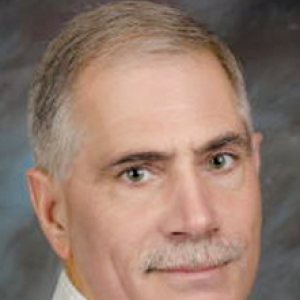“Just add water” – from the Encore Green Environmental website.
Who would have thought that such a simple maxim could be the solution for reducing carbon dioxide emissions while at the same time dealing with an unwanted by-product of the oil fields?
A husband and wife team in Wyoming, that’s who.
Marvin Nash gives all the credit to his wife, Darlene. “She was kind of enough to let me borrow against our life insurance and start a business,” explains Marvin.
The Wyoming husband and wife team now head their own company, Encore Green Environmental (EGE), which is bringing this beautiful solution to the oil patch and to ranchers who have arid range land located near oil wells. As the new company gets its feet on the ground they are planning to establish a headquarters in Montana — maybe in Billings.
EGE is marketing a patent-pending technology – called Conservation by Design — that removes unwanted elements from water, which is a by-product of oil production. Given that every day in the US some 2.4 billion gallons of by-product water – often called produced water – is pumped up with oil and gas production, you can get a glimmer about the potential of being able to make that water useable – especially when one considers that most of the oil fields in western US are in arid regions where ranchers struggle to make a living because of a lack of moisture.
And it gets better. The process of cleaning the produced water and using it to irrigate arid range lands generates plant growth and at that point – as EGE’s website states – -nature’s technology takes over as the increased growth of grass and other vegetation removes carbon dioxide from the air and replaces it with oxygen. And, an added bonus, is that the range land to be irrigated is located right next to the oil well, so there is no need to pipe the water great distances or to truck it.
The water may be just as valuable as oil, and maybe more so in the future, because a potential shortage of water looms as a grave threat to the arid Rocky Mountain region, believes Nash. When discussing agriculture issues or range management, “it always comes back to water,” said Nash, who worries about what that holds for the future of his grandchildren.
In something of a great irony, if there is more water than what the rancher needs, he can store it in reservoirs for stock, wildlife, or to sell it back to the oil companies who need clean water for drilling.
This is a win, win, win.
Without this process the oil companies must haul the “produced water” away. Not only is that tough on profit margins, but it requires a massive trucking operation that burns great amounts of CO2-spewing fuels, in addition to great wear and tear on trucks and roads. It was seeing these long line of trucks hauling away wastewater every day that made Nash say to himself, “we need to quit wasting this water.”
Most of the time oil companies re-inject the water back into the ground – not a good solution – not when it is so vitally needed.
While EGE’s focus is on cleaning up a by-product for the oil companies, “We are really an ag company,” said Nash. Nash’s background has had more to do with agriculture than oil and gas and it is the expertise of agronomist and soil specialists that the company most draws upon. Experts like Neal E. Fehringer, a Certified Professional Agronomist, CCA in Billings, who has his own company, Fehringer Agricultural Consulting, Inc. Fehriger is EGE’s Director of Agronomy.
Locating the company in Billings is to return to a state in which Nash has a long history. Nash used to live in Montana and was very much involved in rodeo, working for former rodeo star and contract rodeo stock supplier, Reg Kesler.
Also, on the EGE team is John Robitaille, who has been a range manager for more than30 years, and was a lobbyist for the oil and gas industry for 20 of those years. He not only understands issues of soil health, but of those who regulate it. He has helped EGE negotiate the challenging process of getting permitted and approved by the various government agencies, such as the Department of Environmental Quality in Wyoming, as well as in Utah, New Mexico, Texas and Oklahoma. EGE must get a permit to apply the water to any land.
Jeff Holder is also part of the company’s team to head communications with the media and public. He comes from the media corporate world as a script writer and it is his challenge to explain the science involved in what they are doing and to convey to the public its benefit.
The process of making the produced water useable for irrigation involves first testing to determine what elements the soil needs. They determine its salinity, or how much clay or sand is in the soil and what it needs to be healthy soil. They then test the produced water to determine what elements need to be removed from it and what needs to be done so it matches up to what the soil needs. While it varies from site to site, in general the water is full of salts, minerals, metals and initially insoluble man-made chemicals needed.
Testing is on-going to monitor the soil conditions as well as the water content and to make adjustments if needed.
And, of course, EGE becomes the conduit between the oil company and the adjacent landowners. As the benefits to both entities are realized, it builds good relationships between the landowner and the company.
The water can be cleaned to the extent that it is potable for livestock, as well. (Until the technology is unquestionably proven, water will not be used to irrigate consumable crops.)
EGE has developed two successful pilot projects in Wyoming, applying six to eight inches of water in addition to natural rain or snowfall.
While one might be inclined to believe that environmentalists would be excited about the potential of EGE in helping to solve a serious environmental problem, they are not. Nash said that they say they believe that there could be long term negative impacts in using the water. Even though the water can be cleaned to the point of being potable, environmentalists say they worry that there may be unidentified contaminates that over time would accumulate and harm the land.
While Nash concedes that what they are doing and developing is a learning process, he is confident that they can remove any contaminate they might find and if not, the water will not be used. This is the two test step, fail-safe process of Conservation By-Design. It was, after all concern about soil health that sparked the Nashes interest.


